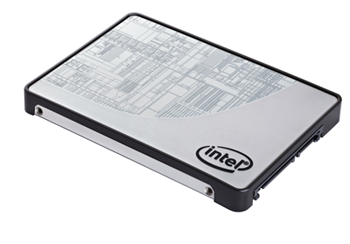Cyan is conducting a live multi-vendor, SDN demonstration showing how network operators can offer their customers the ability to dynamically spin up data center virtual machines (VMs), along with virtualized network resources, via standard APIs or a web portal. The demo, which is being held at this week's Interop Tokyo, leverages OpenFlow and extends between an Ethernet-connected private enterprise and a cloud-enabled public or private data center.
Specifically, applications running on an enterprise server dynamically place requests for additional cloud data center virtual machines and associated network resources using OpenStack application program interfaces (APIs) and OpenFlow. Cyan's Blue Planet SDN system services the request on behalf of network resources and proxies the compute and data center network demands to an OpenStack server in the cloud data center. Blue Planet performs all functions necessary to turn up additional services across the multi-vendor carrier network including carrier Ethernet and optical edge devices from Overture and Accedian Networks. The data center instance of OpenStack negotiates with compute resources and with Arista data center switches to allocate the necessary network and compute capacity.
Tokyo-based KVH, a leading provider of integrated IT and network services, is among the carriers interested in delivering this capability to their customers. According to Yoshiyuki Hamada, KVH Vice President of Systems & Technology, “We see SDN service orchestration that includes both data center and network assets as being hugely important not only for KVH but, more importantly, for our customers. For KVH, this obviously improves our competitive differentiation and service profitability. For our customers it means more rapid, flexible, and cost effective services.”
The SDN demonstration includes Accedian Networks' MetroNID GT, Arista's 7050S 10G/40G data center switches and EOS (extensible operating system) software enabled with E-API, OpenFlow and OpenStack Quantum OVS drivers, Canonical's Ubuntu operating system for OpenStack, Cyan' Blue Planet SDN system and Z22 packet-optical transport platforms, Overture Networks' Carrier Ethernet Access Devices, and RYU's OpenFlow controllers.
"What’s really interesting here is the extension of SDN concepts beyond the data center and into the carrier network and enterprise. This closes the loop on service orchestration and also enables much more compelling business models both for data center operators and carriers (or any other network operator). The whole purpose of the Blue Orbit Ecosystem, also announced today, is to test SDN use cases and prove interoperability in multi-vendor environments. The SDN Use Case demonstration here at Interop Tokyo shows this work in action," Tom Corker, stated Cyan vice president of strategy.
The demonstration builds on Cyan's new Blue Orbit ecosystem of software and hardware solutions for multi-vendor software-defined network (SDN) applications. Initial members of Cyan's Blue Orbit program include: Accedian Networks, Arista Networks, Boundary, Canonical, (the company behind Ubuntu the reference operating system for OpenStack), Embrane, Overture Networks, and RYU (part of NTT Laboratories’ Open Source Software Computing Group).
http://www.cyaninc.com
Specifically, applications running on an enterprise server dynamically place requests for additional cloud data center virtual machines and associated network resources using OpenStack application program interfaces (APIs) and OpenFlow. Cyan's Blue Planet SDN system services the request on behalf of network resources and proxies the compute and data center network demands to an OpenStack server in the cloud data center. Blue Planet performs all functions necessary to turn up additional services across the multi-vendor carrier network including carrier Ethernet and optical edge devices from Overture and Accedian Networks. The data center instance of OpenStack negotiates with compute resources and with Arista data center switches to allocate the necessary network and compute capacity.
Tokyo-based KVH, a leading provider of integrated IT and network services, is among the carriers interested in delivering this capability to their customers. According to Yoshiyuki Hamada, KVH Vice President of Systems & Technology, “We see SDN service orchestration that includes both data center and network assets as being hugely important not only for KVH but, more importantly, for our customers. For KVH, this obviously improves our competitive differentiation and service profitability. For our customers it means more rapid, flexible, and cost effective services.”
The SDN demonstration includes Accedian Networks' MetroNID GT, Arista's 7050S 10G/40G data center switches and EOS (extensible operating system) software enabled with E-API, OpenFlow and OpenStack Quantum OVS drivers, Canonical's Ubuntu operating system for OpenStack, Cyan' Blue Planet SDN system and Z22 packet-optical transport platforms, Overture Networks' Carrier Ethernet Access Devices, and RYU's OpenFlow controllers.
"What’s really interesting here is the extension of SDN concepts beyond the data center and into the carrier network and enterprise. This closes the loop on service orchestration and also enables much more compelling business models both for data center operators and carriers (or any other network operator). The whole purpose of the Blue Orbit Ecosystem, also announced today, is to test SDN use cases and prove interoperability in multi-vendor environments. The SDN Use Case demonstration here at Interop Tokyo shows this work in action," Tom Corker, stated Cyan vice president of strategy.
The demonstration builds on Cyan's new Blue Orbit ecosystem of software and hardware solutions for multi-vendor software-defined network (SDN) applications. Initial members of Cyan's Blue Orbit program include: Accedian Networks, Arista Networks, Boundary, Canonical, (the company behind Ubuntu the reference operating system for OpenStack), Embrane, Overture Networks, and RYU (part of NTT Laboratories’ Open Source Software Computing Group).





















